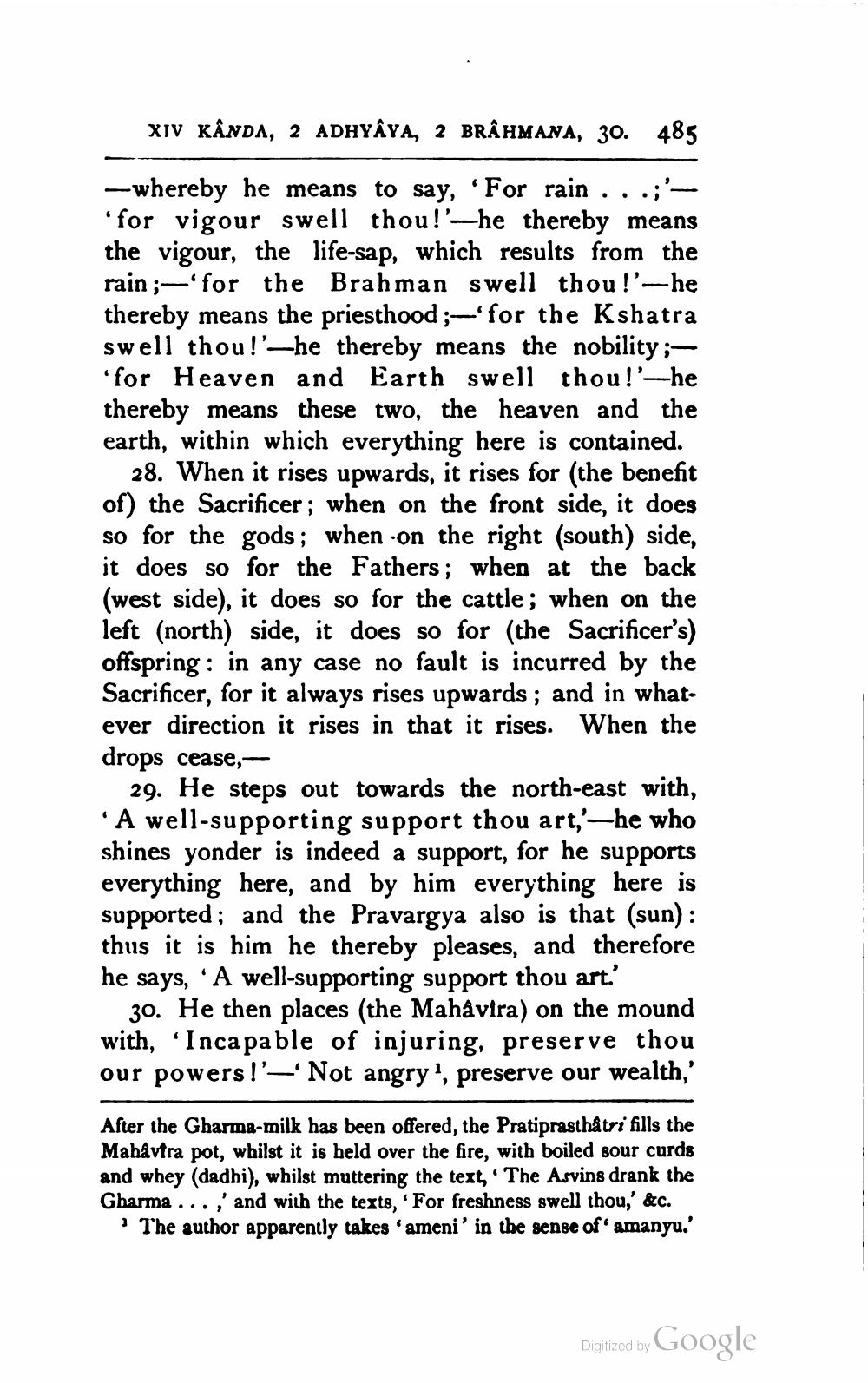________________
XIV KÂNDA, 2 ADHYAYA, 2 BRÂHMANA, 30. 485
-whereby he means to say, 'For rain ...;'for vigour swell thou!'—he thereby means the vigour, the life-sap, which results from the rain ;-'for the Brahman swell thou!'-he thereby means the priesthood ;-'for the Kshatra swell thou!'-he thereby means the nobility ;'for Heaven and Earth swell thou!'-he thereby means these two, the heaven and the earth, within which everything here is contained.
28. When it rises upwards, it rises for (the benefit of) the Sacrificer; when on the front side, it does so for the gods; when on the right (south) side, it does so for the Fathers; when at the back (west side), it does so for the cattle; when on the left (north) side, it does so for (the Sacrificer's) offspring : in any case no fault is incurred by the Sacrificer, for it always rises upwards ; and in whatever direction it rises in that it rises. When the drops cease,
29. He steps out towards the north-east with, A well-supporting support thou art,'—he who shines yonder is indeed a support, for he supports everything here, and by him everything here is supported; and the Pravargya also is that (sun): thus it is him he thereby pleases, and therefore he says, 'A well-supporting support thou art.'
30. He then places (the Mahavira) on the mound with, 'Incapable of injuring, preserve thou our powers !'— Not angry', preserve our wealth,'
After the Gharma-milk has been offered, the Pratiprasthåtri fills the Mahavfra pot, whilst it is held over the fire, with boiled sour curds and whey (dadhi), whilst muttering the text, 'The Asvins drank the Gharma . . .,' and with the texts, 'For freshness swell thou,' &c.
I The author apparently takes ameni' in the sense of amanyu.'
Digitized by Google




